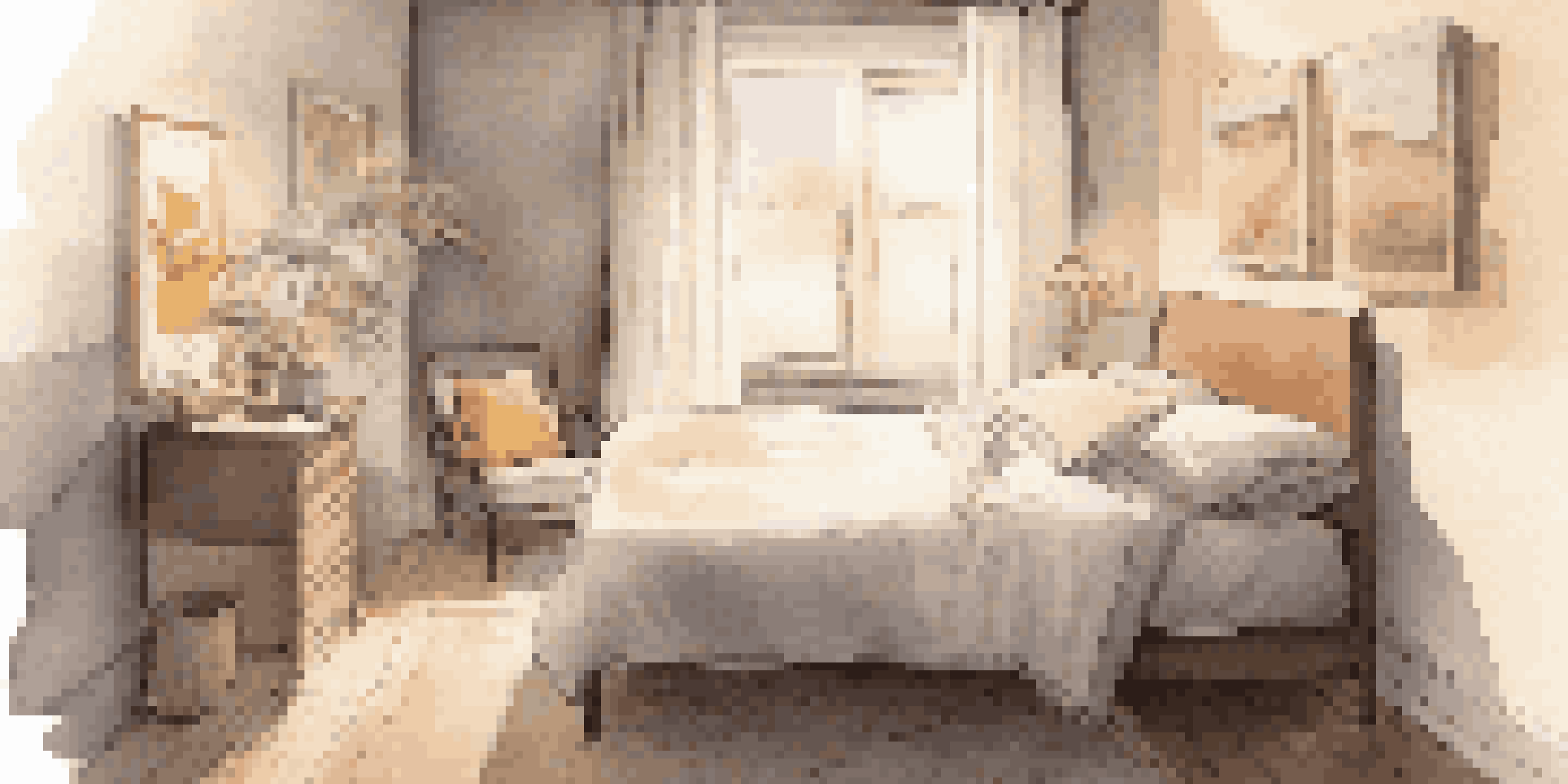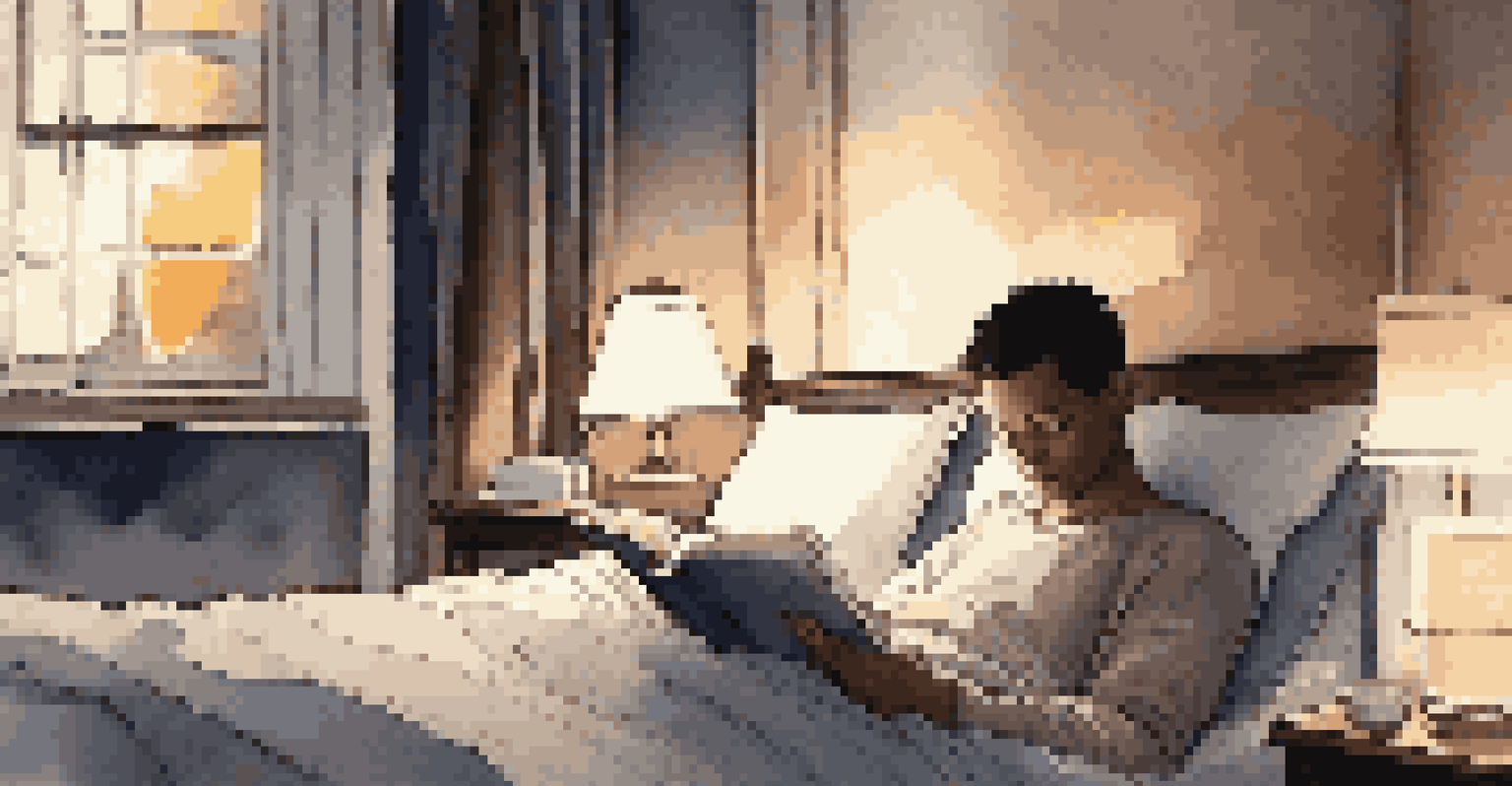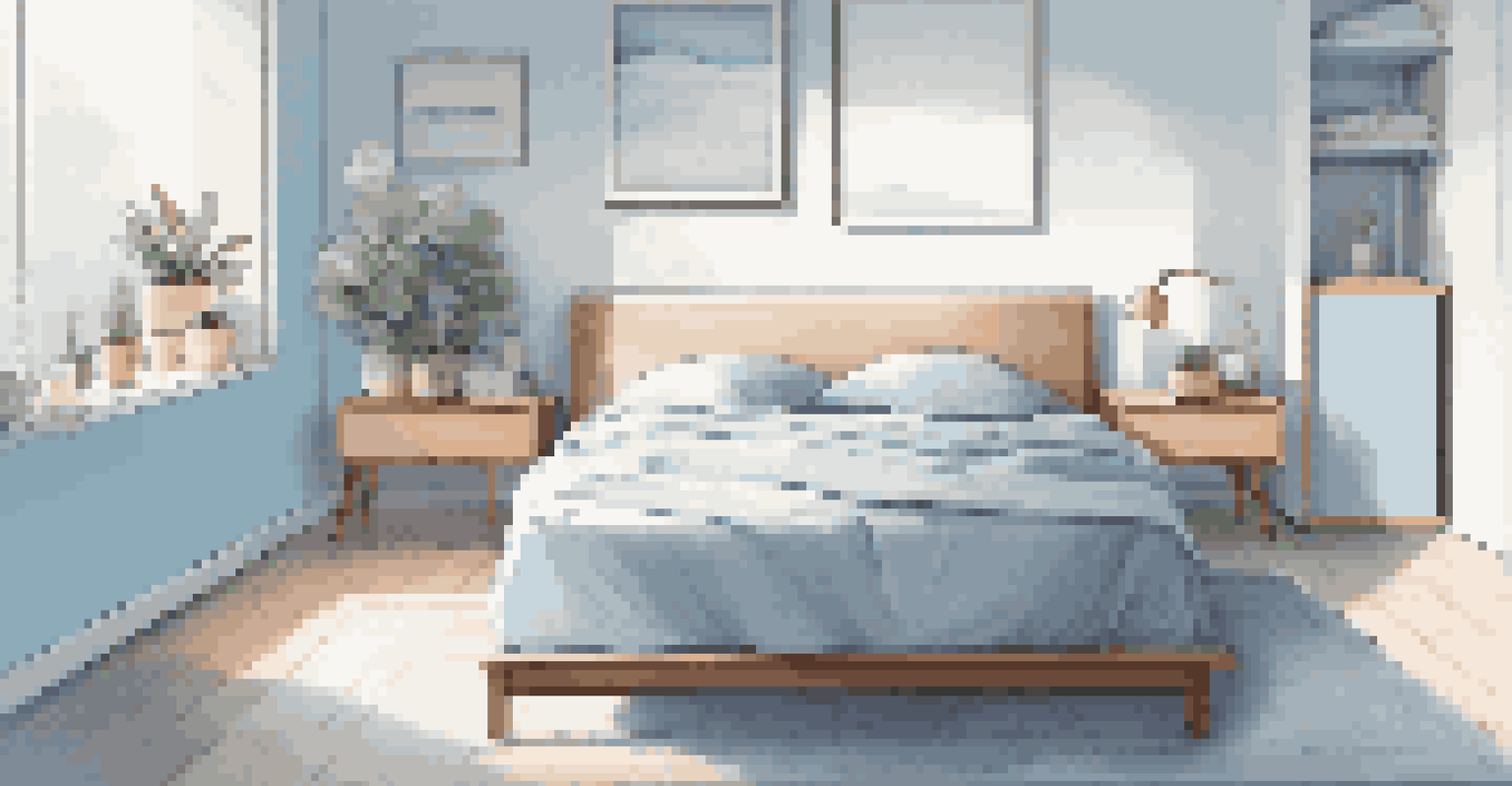Sleep Deprivation: The Hidden Cost of Technology Overuse

Understanding Sleep Deprivation in a Digital Age
Sleep deprivation refers to the condition of not getting enough sleep, which is becoming increasingly common in our tech-driven world. With the rise of smartphones, tablets, and computers, many of us find ourselves sacrificing sleep for screen time. This lack of sleep can lead to a plethora of health issues, from decreased cognitive function to weakened immune response.
Sleep is the best meditation.
It’s not just the quantity of sleep that matters, but also the quality. The blue light emitted from screens interferes with our natural sleep cycles, making it harder to fall asleep and stay asleep. This disruption can leave us feeling groggy and unfocused the next day, perpetuating a cycle of fatigue.
Understanding the relationship between technology and sleep is crucial for identifying solutions. By recognizing how our devices impact our nightly rest, we can take steps to reclaim our sleep and enhance our overall well-being.
The Role of Blue Light in Sleep Disruption
Blue light, which is emitted by screens, has been shown to interfere with the production of melatonin, the hormone responsible for regulating sleep. When we expose ourselves to blue light in the evening, it tricks our brain into thinking it's still daytime, making it harder to wind down. This can lead to a cycle of sleeplessness that many people struggle to escape.

Consider this: if you were to read a book before bed, your mind would begin to relax and prepare for sleep. However, scrolling through social media or binge-watching shows can keep your mind racing and alert. This is why many experts recommend establishing a tech-free wind-down routine before bedtime.
Impact of Blue Light on Sleep
Blue light from screens disrupts melatonin production, making it harder to fall and stay asleep.
By being mindful of our blue light exposure, especially in the hours leading up to sleep, we can improve our chances of getting a good night's rest. Simple adjustments, like using blue light filters or setting a screen curfew, can make a significant difference.
Consequences of Sleep Deprivation on Health
The implications of sleep deprivation extend beyond just feeling tired. Chronic sleep deprivation is linked to serious health issues, including obesity, diabetes, and heart disease. It can also affect mental health, leading to conditions such as anxiety and depression.
The shorter your sleep, the shorter your life.
Imagine driving a car with a flat tire; it might still move, but it's not safe or efficient. In the same way, our bodies struggle to function optimally without sufficient rest. When we’re sleep-deprived, our decision-making skills, reaction times, and emotional stability can all be compromised.
Recognizing the gravity of sleep deprivation is the first step toward prioritizing rest in our lives. By understanding these consequences, we can motivate ourselves to make necessary changes to our daily routines.
The Disconnect Between Sleep and Productivity
Many people believe that sacrificing sleep can lead to increased productivity. However, studies show the opposite is true; well-rested individuals are more focused, creative, and efficient. In fact, pulling all-nighters often results in diminished returns the following day.
Think of sleep as the fuel in your productivity engine. Without enough fuel, the engine struggles to run smoothly, leading to breakdowns and delays. By investing in a good night's sleep, we actually enhance our ability to tackle tasks and solve problems effectively.
Sleep Affects Health and Productivity
Chronic sleep deprivation can lead to serious health issues and negatively impacts decision-making and productivity.
Shifting our mindset to value sleep as a crucial component of productivity can transform how we approach our work and personal lives. Prioritizing rest can lead to better performance and overall satisfaction.
Creating a Tech-Free Sleep Environment
Designing a sleep-friendly environment can significantly improve our sleep quality. This means creating a space that minimizes distractions, particularly from technology. Consider implementing a 'no screens' rule in the bedroom to help facilitate better rest.
In addition to reducing screen time, other elements can enhance your sleep environment. Keeping the room cool, dark, and quiet can help signal to your body that it’s time to wind down. Investing in blackout curtains or a white noise machine can be beneficial.
Remember, your bedroom should be a sanctuary for sleep, not a tech hub. By consciously separating your sleep space from your digital devices, you'll likely find it easier to relax and drift off into a restful slumber.
Establishing Healthy Sleep Habits
Developing healthy sleep habits is essential for combating sleep deprivation. This can include setting a consistent sleep schedule, going to bed and waking up at the same time each day. Our bodies thrive on routine, and consistency can greatly improve our sleep quality.
Incorporating calming bedtime rituals can also signal to your body that it's time to sleep. Activities like reading a book, practicing meditation, or taking a warm bath can help prepare your mind and body for rest. Avoiding stimulating activities, such as intense workouts or engaging in heated discussions, can also be beneficial.
Creating a Sleep-Friendly Environment
Designing a tech-free sleep environment can significantly enhance sleep quality and promote better rest.
By prioritizing these habits, we create a foundation for improved sleep. Over time, these small changes can lead to significant benefits for our physical and mental health.
Taking Action Against Sleep Deprivation
Recognizing the impact of technology on our sleep is the first step, but taking action is where the real change happens. Start by assessing your current technology habits and identifying areas for improvement. This could involve reducing screen time before bed or setting boundaries around device use.
Creating a plan to gradually implement these changes can lead to lasting results. Perhaps you might designate tech-free zones or times in your home, or use apps that limit your screen time. Even small adjustments can help foster a healthier relationship with technology.

Ultimately, taking action against sleep deprivation not only benefits our sleep but also enhances our overall well-being. It's time to reclaim our evenings and prioritize the rest we deserve.